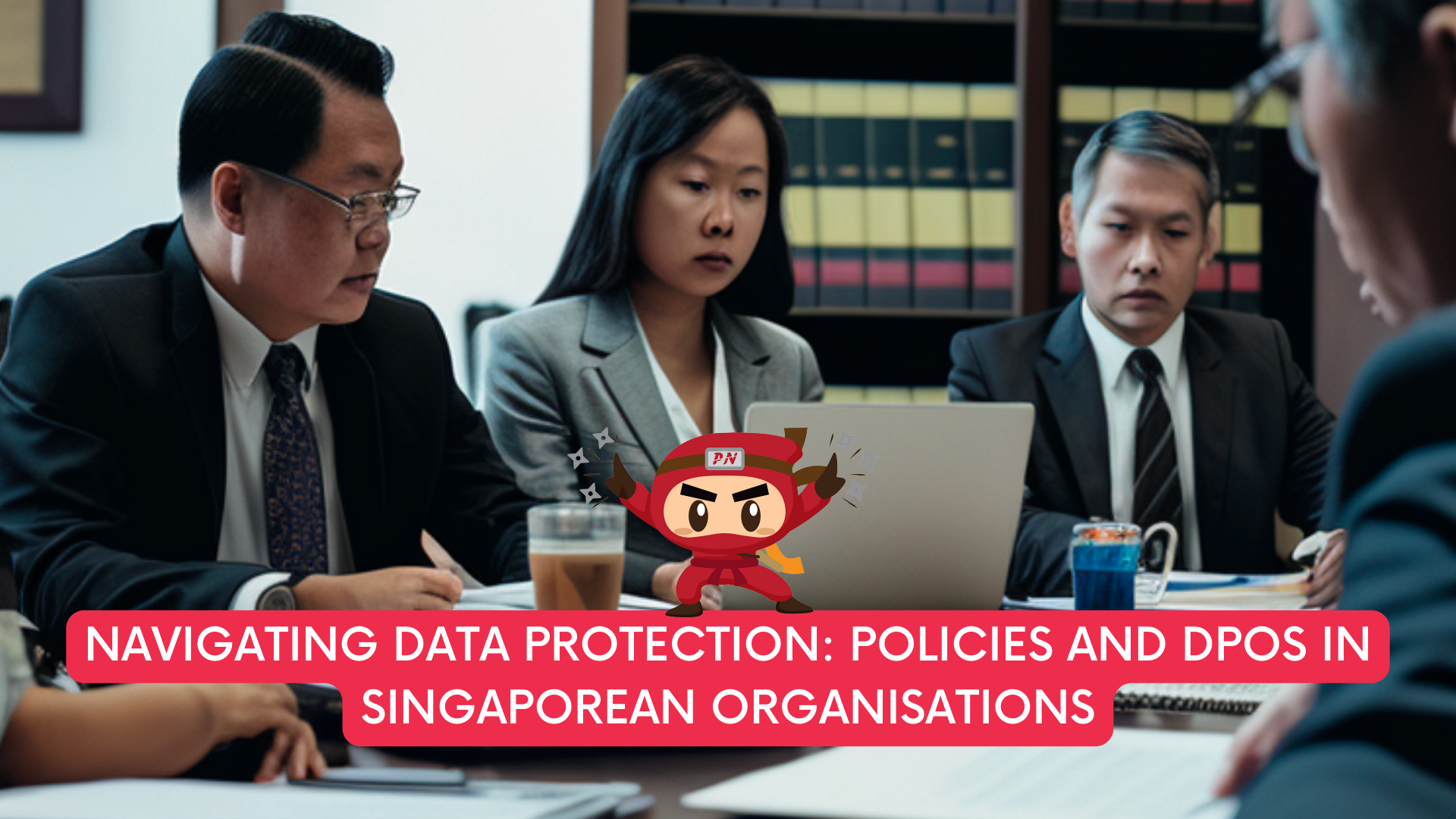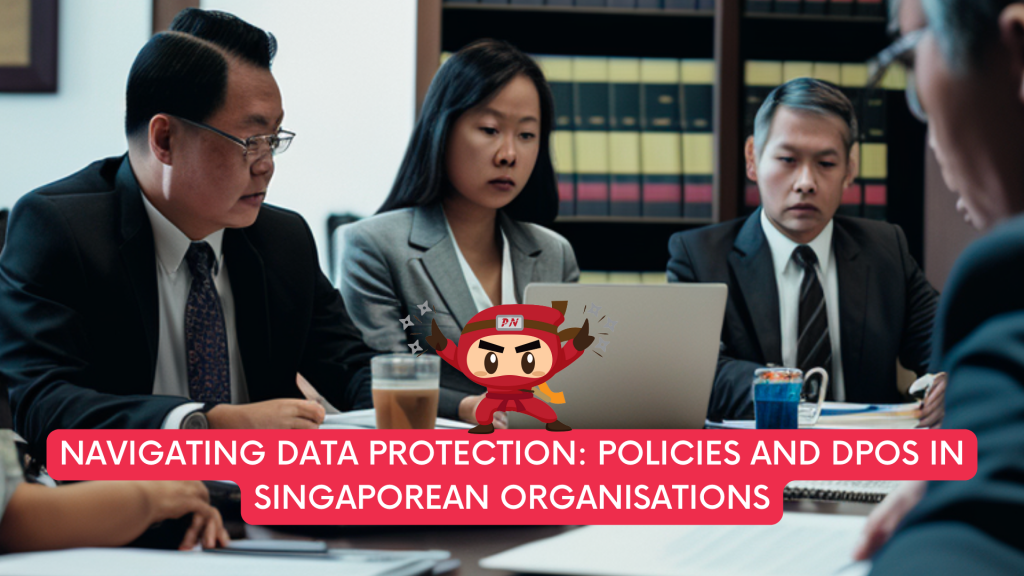KEEP IN TOUCH
Subscribe to our mailing list to get free tips on Data Protection and Cybersecurity updates weekly!







As organizations increasingly rely on data-driven insights to fuel their operations, the need for robust data protection policies and appointed Data Protection Officers (DPOs) has become paramount. In Singapore, where data privacy and security are highly valued, companies are taking proactive measures to safeguard sensitive information and comply with the Personal Data Protection Act (PDPA).
This article delves into the importance of implementing comprehensive data protection policies and the role of DPOs in ensuring regulatory compliance and fostering a culture of data privacy within Singaporean organizations.
Data protection policies are essential frameworks that define an organization’s approach to handling personal data. Such policies serve as a guide to manage data collection, usage, storage, and sharing in a secure and privacy-conscious manner. In Singapore, these policies are not only encouraged but also mandated by the PDPA, which governs the collection, use, and disclosure of personal data by organizations.

To craft effective data protection policies, organizations in Singapore must consider various key components. Firstly, policies should clearly outline the purpose and scope of data collection, specifying the types of personal information that will be gathered. This helps ensure transparency and allows individuals to make informed decisions regarding their data.
Secondly, organizations need to establish lawful bases for data processing, ensuring they have obtained the necessary consent or meet other legal grounds prescribed by the PDPA. Adequate procedures for obtaining and managing consent should be clearly stated within the policies.
One of the critical requirements under the PDPA is the appointment of a Data Protection Officer (DPO) by organizations. The DPO serves as the focal point for data protection matters, responsible for overseeing the implementation and compliance of data protection policies and practices.
DPOs in Singaporean organizations shoulder several crucial responsibilities. Firstly, they play a pivotal role in ensuring the organization’s data protection policies align with regulatory requirements. DPOs actively monitor changes in data protection laws and update policies accordingly, minimizing the risk of non-compliance.
Secondly, DPOs are responsible for educating and training employees on data protection policies and best practices. By fostering a culture of data privacy, DPOs help minimize the potential for data breaches and promote responsible data handling practices across the organization.
Data protection is a collective effort that involves various stakeholders within an organization. DPOs act as a bridge between management, employees, and regulatory bodies, facilitating communication and collaboration. They work closely with IT departments to implement robust security measures, conduct regular risk assessments, and ensure data breach response plans are in place.
In Singapore’s data-centric landscape, organizations must prioritize data protection policies and the appointment of DPOs to safeguard personal information and comply with legal requirements. By establishing comprehensive policies and engaging competent DPOs, organizations can build trust with their stakeholders, enhance data security, and promote a privacy-conscious culture.
Embracing these practices not only reduces the risk of regulatory penalties but also fosters a reputation for responsible data management in the digital era.

Your appointed DPO can work with you on your PDPA compliance, ensuring that there will be policies in place to make sure that the handling of personal data is PDPA compliant. This includes promptly responding to the PDPC with their queries to expedite the investigations and prevent a harsher penalty from the Commission.
A Data Protection Officer (DPO) oversees data protection responsibilities and ensures that organisations comply with the Personal Data Protection Act (PDPA). Furthermore, every Organization’s DPO should be able to curb any instances of PDPA noncompliance as it is the officer responsible for maintaining the positive posture of an organisation’s cybersecurity.
DPOs complement organisations’ efforts to ensure that the organisation’s methods of collecting personal data comply with the PDPA. It also ensures that policies are set in place to make sure that there will be no instances of data breaches in the future.
Don’t wait any longer to ensure your organisation is PDPA compliant. Take our free 3-minute PDPA Compliance Self-audit checklist now, the same “secret weapon” used by our clients to keep them on track. Upon completion, we will send you the results so you can take the necessary action to protect your customers’ data. Complete the free assessment checklist today and take the first step towards protecting your customers’ personal data.